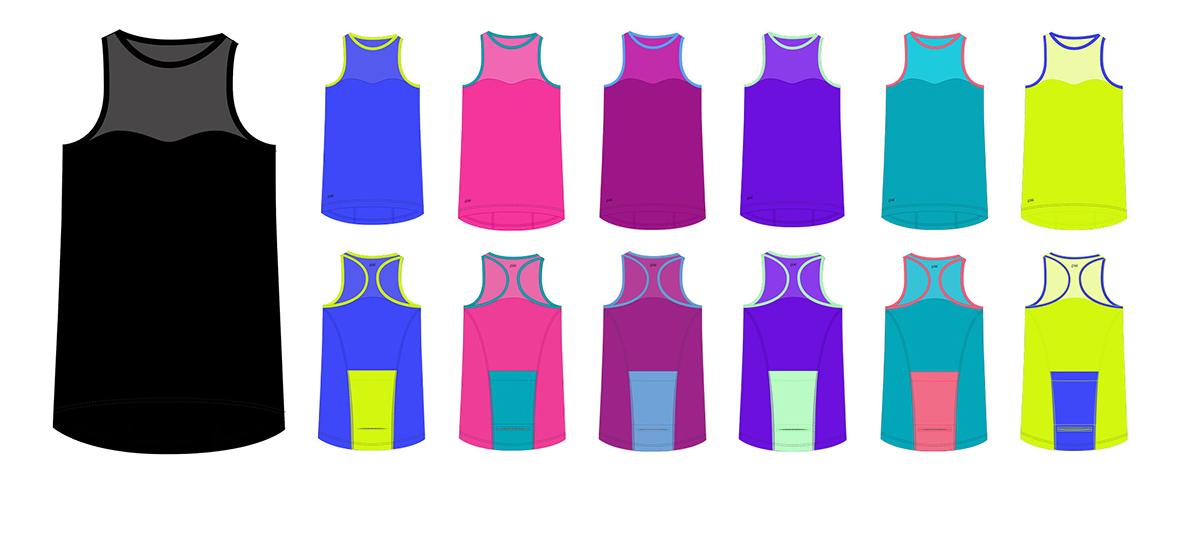A BU Grad Is Launching a Cycling Apparel Line for Women

A rendering of Pixi’s first tank top. Image provided to bostonmagazine.com
While on the club cycling team at Boston University, Emily Welsch grew tired of wearing clothes that were essentially shrunken, pink-washed versions of mens’ gear—so she decided to do something about it.
Harnessing her interest in art and design, Welsch, who studied chemistry, began designing her own line of high-performance cycling clothes made exclusively for women, now named Pixi. “We redesigned the apparel from the ground up, and we started, first, by looking at the basic foundation: a woman’s form,” she says. “You can’t find much out there that’s really incredibly flattering [for women].”
Though Welsch launched her company last month, its first line of products will not be available until a fall 2016 Kickstarter campaign. The first two pieces to hit Kickstarter, Welsch says, will be a tank top made from moisture-wicking, quick-drying material equipped with two pockets, and a three-quarter-length pant with minimal-looking padding, a reflective lining, and anti-chafe fabric. “In cycling, it’s obviously very important that you have clothing that’s anti-chafing, and in racing, it’s very important that it’s aerodynamic,” she says. “The most important is that it’s fitted and it’s flattering.”
Costs are estimated to run between $60 and a bit over $100 per piece, a price point Welsch hopes will ensure that the line is accessible “not just for people who have fully committed to outdoor cycling.”
Welsch says all of Pixi’s pieces can be worn for either indoor or outdoor cycling; both of the inaugural products are light and ventilated enough for a sweaty Spin class, while also incorporating outdoor functionalities like reflective lining. The pieces are also designed with women’s bodies in mind, meaning perks like tan line-reducing cuts, tactfully placed padding, and sleeves that reduce “sausage link arms.”
While Pixi clothes won’t be available to purchase for nearly another year, Welsch says the demand makes the delay worthwhile.
“A lot of women are willing to wait,” she says, “because there’s such a dire need.”


